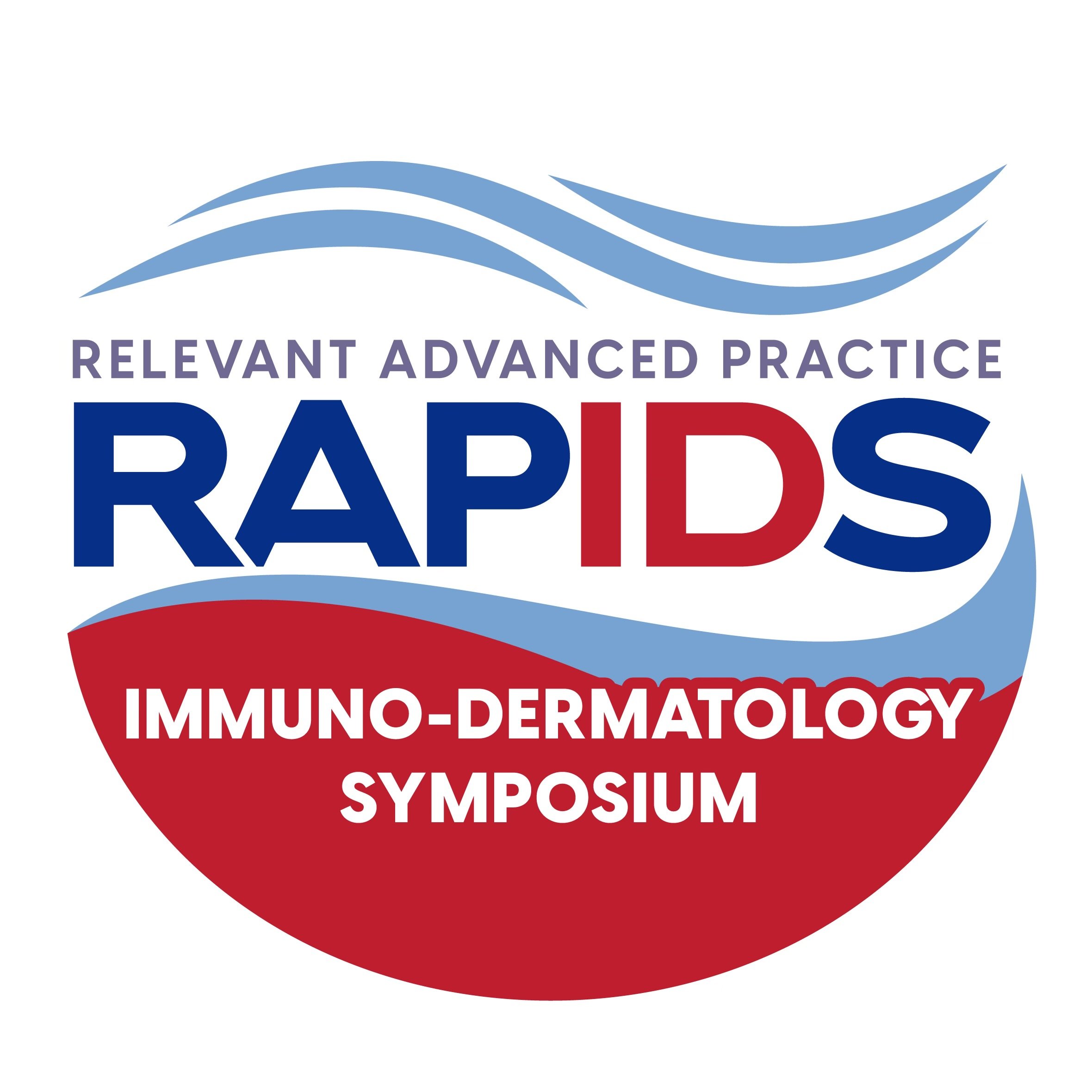RAPIDS Clinical Insights - Day 4
- In:
Clinical Practice,
Professional Development
Day 4 Clinical Insights from the Inaugural RAPIDS Conference at the Hyatt Regency Grand Reserve in San Juan, Puerto Rico
Sunday, April 13, 2025
What’s on the Horizon: Other Potential Targets (Justine Love, PA-C, and Jennifer Soung, MD)
- There are many drugs currently in Phase 2 for AD, including two “Triple threat” tri-specific monoclonal antibodies…one targeting IL-4/13/TSLP and one targeting IL-4/13/33, plus Anti-OX40, TPD = targeted protein degradation, TSLP-epidermal cytokine, Anti-IL-22RA-1-IL-20 cytokine blockers, etc.
- There are multiple ORAL drugs in Phase 2 and 3 for PsO: Oral TNFR1, Oral S1PR1-G proteins, Oral IL-23 receptor antagonist peptide, Allosteric inhibitor of TYK2, and Oral PDE-4 inhibitor.
- CSU has a number of oral drugs in their Phase 2/3 development, including a few oral BTK inhibitors, a JAK-1 inhibitor, and MRGPRX2-targeting Mast cells. Plus an anti-KIT monoclonal antibody
Obesity and Inflammatory Skin Disease (Jennifer Soung, MD)
- The GLP-1 agonists (Liraglutide, Semaglutide, and Tirzepatide) have been a game-changer in weight loss management. They mimic the incretin hormone, which is released in the GI tract in response to eating, to control appetite and metabolism.
- Adipose tissue releases adipokines and pro-inflammatory cytokines that contribute to psoriasis development. Obesity increases the severity of PsO, PGA, or PASI.
- Both Psoriasis and Obesity share the common pathways with overproduction of TNF-alpha, IL-17, IL-23, and IL-6. The GLP1-agonist Liraglutide has been shown to reduce the expression of IL-17, IL-23, and TNF.
Why is it Named That? What Can Drug Names Tell You? (Jennifer Soung, MD)
- Biosimilars are NOT just generics of the available Biologics on the market. Since they are manufactured from living systems, some inherent variation is expected within each lot.
- INN (International Nonproprietary Names) nomenclature is changing and discontinuing the use of the stem “-mab” because the meaning was not always clear, and is being used for a variety of small immunoglobulins to large molecules.
- The FOUR NEW stems are “-tug” for unmodified immunoglobulins, “-bart” for artificial immunoglobulins, “-ment” for immunoglobulin fragments, and “-mig” for multi-specific immunoglobulins.
Name That Cytokine - Kodachromes in Immunology Championship (Martha Sikes, PA-C)
- Psoriasis Gut Microbiome: Psoriasis patients have a higher abundance of Firmicutes, lower amounts of Bacteroidetes, higher E. Coli, and a higher prevalence of Candida. Patients can reduce Candida colonization with dietary coconut oil and high-protein, fatty acid, and amino acid diets.
- In ‘Leaky Gut’, there is increased intestinal permeability and bacterial surface molecules, called endotoxin (LPS=Lipopolysaccharides), which result in increased IL-6, IL-1alpha, IFN-gamma, triglycerides, and insulin. This leads to Food Intolerance and Immune Dysregulation, which leads to an increased risk of a variety of chronic diseases.
- Generalized Pustular Psoriasis is linked to a deficiency of IL-36 receptor antagonism due to IL-36RN gene mutation and can be linked to inflammatory liver, kidney, joint, and eye disease.

